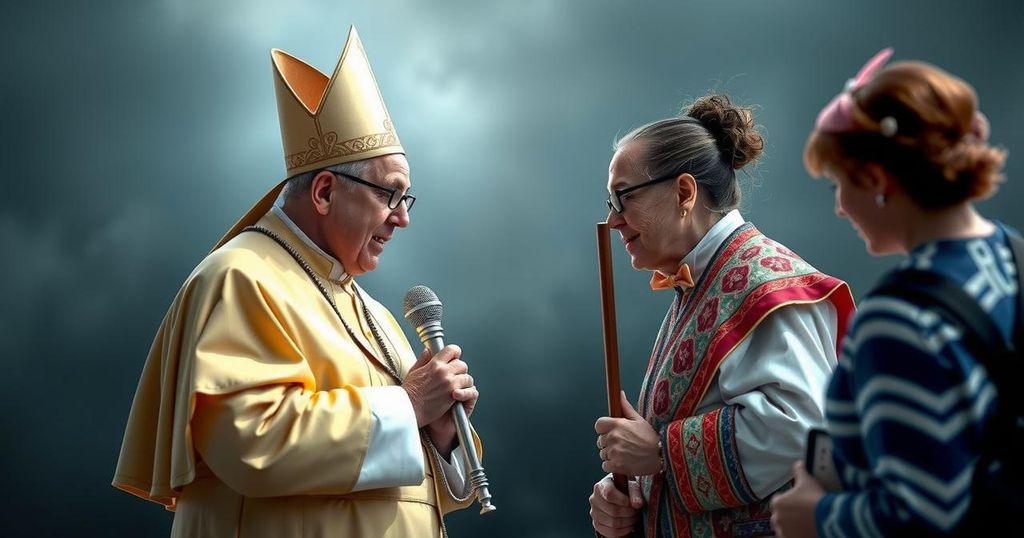At COP29, the Vatican and several conservative nations have blocked discussions on women’s rights, opposing proposals to integrate gender considerations in climate action. Colombia’s environment minister condemned this obstruction, highlighting the disproportionate impact of climate change on women. With the current UN gender programme set to expire, urgent negotiations are crucial for supporting women in environmental crises.
Recent developments at the COP29 climate summit have sparked controversy as the Vatican has hindered discussions related to women’s rights, primarily due to disagreements concerning transgender and gay issues. Representatives including those from Saudi Arabia, Russia, Iran, and Egypt have joined the Vatican in obstructing proposals aimed at enhancing support for women affected by climate change, notably during negotiations on updated gender considerations within the ten-year-old Lima Work Programme on Gender. Colombia’s environment minister, Susana Muhamad, articulated the critical stance of Latin American nations, emphasizing the immediate necessity of integrating gender perspectives into climate action. Moreover, the proposal underscored that the experiences of women facing climate challenges are not monolithic but shaped by diverse factors such as gender, age, and race.
The Vatican’s unexpected position has been perceived by observers as part of a broader global regression concerning women’s and LGBTQ+ rights, with reactions expressing profound disappointment. Charitable organizations have highlighted alarming statistics indicating that women and girls constitute 80% of those displaced by climate-related disasters, yet a mere 0.01% of global climate funding addresses their specific needs. The urgency of reaching a consensus is amplified by the impending expiration of the current UN gender programme, which, if unmet, would leave a significant void in strategic support for women facing the realities of climate change.
While Pope Francis has exhibited a more inclusive approach toward LGBTQ+ sentiments in certain contexts, the Vatican remains firm in its traditional stance on marriage and gender identity. As negotiations at COP29 proceed, the representation of women in discussions continues to be inadequate, further emphasizing the need for diverse voices in shaping climate policies that reflect the lived experiences of women. The EU has called upon the acknowledgment of women’s empowerment as essential in confronting the climate crisis, garnering backing from multiple nations.
The Vatican’s recent obstruction of talks on women’s rights at COP29 centers around a refusal to accept gender language that could imply recognition of transgender and gay identities, highlighting a significant ideological rift among participating nations. These tensions are set against a backdrop of rising global movements for gender equality and the recognition of the specific burdens women face in climate crises. Statistics demonstrate that women disproportionately endure the effects of climate change, with many organizations advocating for increased financial and logistical support directed towards their unique challenges. The Lima Work Programme on Gender, critical for structuring global responses to these challenges, faces an uncertain future due to this political impasse, underscoring the urgency for women’s voices in climate discussions.
The Vatican’s alignment with a coalition of conservative nations at COP29 has cast doubt on the future of women’s rights in climate negotiations. With the expiry of essential UN gender action frameworks looming, the resistance to inclusive language raises concerns about the direction of climate policies impacting women. The feedback from representatives highlights the need for urgent action and inclusive representation to ensure that negotiations adequately reflect the diverse experiences of women facing climate change. Continued advocacy is essential for securing beneficial outcomes that prioritize the rights and needs of women globally.
Original Source: www.bbc.com






